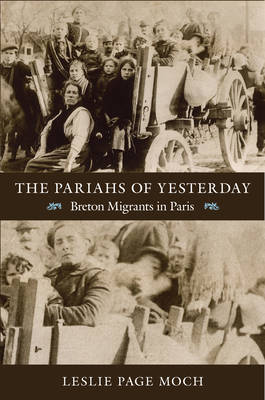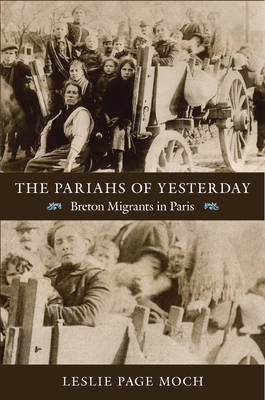
Bedankt voor het vertrouwen het afgelopen jaar! Om jou te bedanken bieden we GRATIS verzending (in België) aan op alles gedurende de hele maand januari.
- Afhalen na 1 uur in een winkel met voorraad
- In januari gratis thuislevering in België
- Ruim aanbod met 7 miljoen producten
Bedankt voor het vertrouwen het afgelopen jaar! Om jou te bedanken bieden we GRATIS verzending (in België) aan op alles gedurende de hele maand januari.
- Afhalen na 1 uur in een winkel met voorraad
- In januari gratis thuislevering in België
- Ruim aanbod met 7 miljoen producten
Zoeken
€ 53,45
+ 106 punten
Omschrijving
Beginning in the 1870s, a great many Bretons--men and women from Brittany, a region in western France--began arriving in Paris. Every age has its pariahs, and in 1900, the "pariahs of Paris" were the Bretons, the last distinct group of provincials to come en masse to the capital city. The pariah designation took hold in Paris, in Brittany, and among historians. Yet the derision of recent migrants can be temporary. Tracing the changing status of Bretons in Paris since 1870, Leslie Page Moch demonstrates that state policy, economic trends, and the attitudes of established Parisians and Breton newcomers evolved as the fortunes of Bretons in the capital improved. The pariah stereotype became outdated. Drawing on demographic records and the writings of physicians, journalists, novelists, lawyers, and social scientists, Moch connects internal migration with national integration. She interprets marriage records, official reports on employment, legal and medical theses, memoirs, and writings from secular and religious organizations in the Breton community. As the pariahs of yesterday, Bretons are an example of successful integration into Parisian life. At the same time, their experiences show integration to be a complicated and lengthy process.
Specificaties
Betrokkenen
- Auteur(s):
- Uitgeverij:
Inhoud
- Aantal bladzijden:
- 272
- Taal:
- Engels
Eigenschappen
- Productcode (EAN):
- 9780822351832
- Verschijningsdatum:
- 30/03/2012
- Uitvoering:
- Paperback
- Formaat:
- Trade paperback (VS)
- Afmetingen:
- 155 mm x 231 mm
- Gewicht:
- 358 g

Alleen bij Standaard Boekhandel
+ 106 punten op je klantenkaart van Standaard Boekhandel
Beoordelingen
We publiceren alleen reviews die voldoen aan de voorwaarden voor reviews. Bekijk onze voorwaarden voor reviews.









